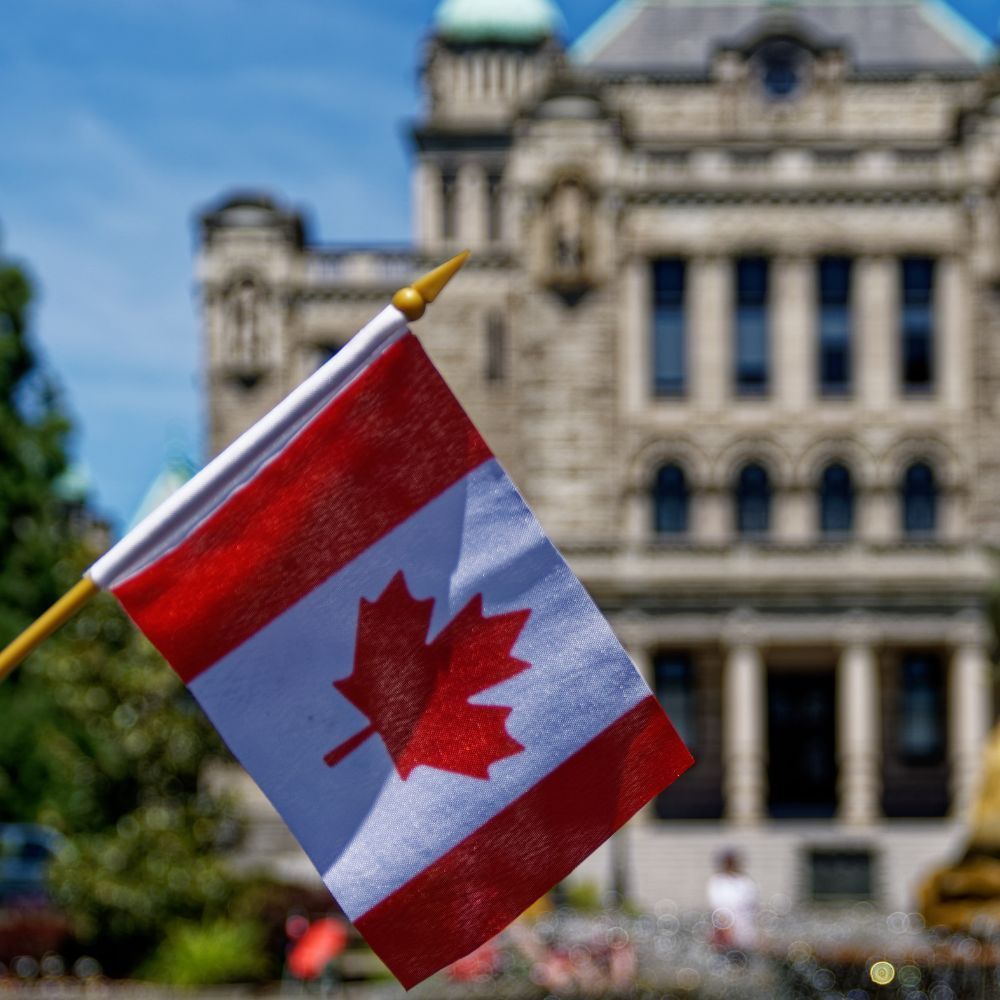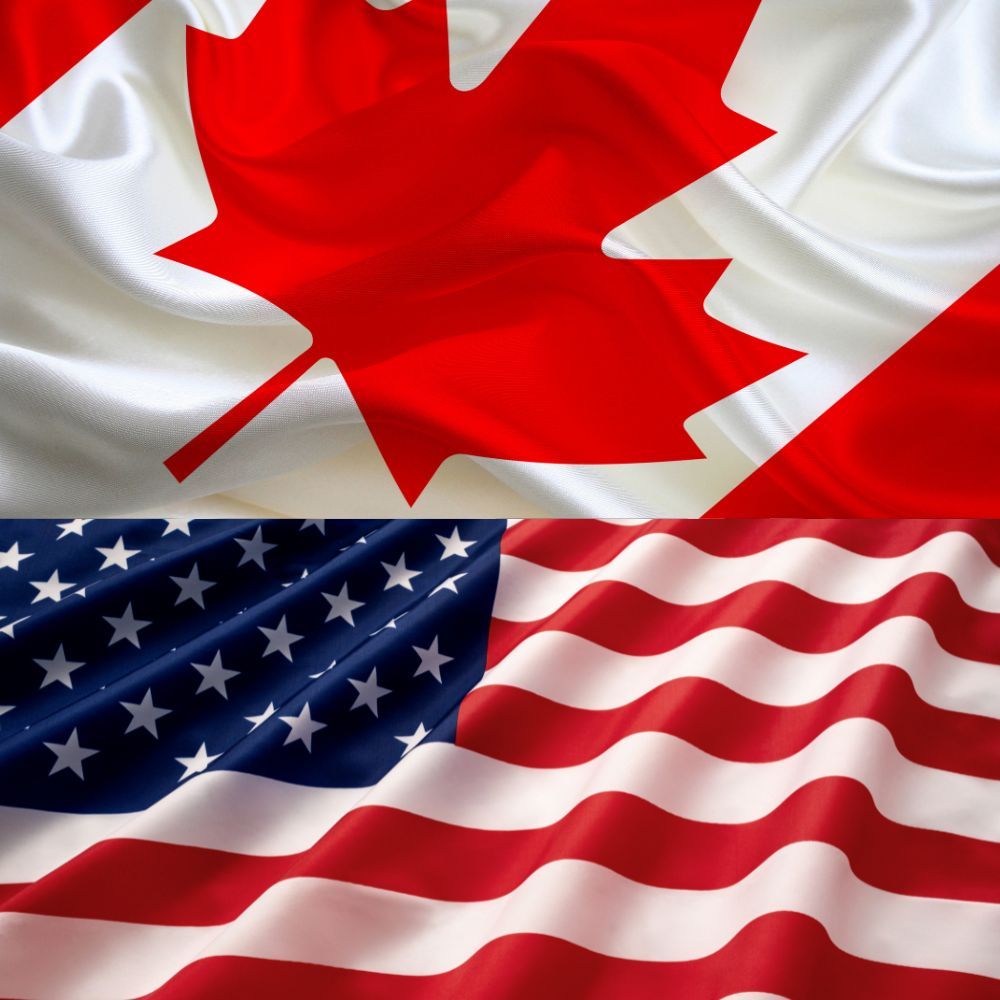By Patrick Gossage
•
September 17, 2025
Welcoming newcomers, especially those fleeing wars, has been a widely accepted Canadian virtue. Now, after 25 years of a very open door. there is increasing evidence that we have too much of a good thing. And admittedly, it has been pre-PM Carney Liberal policies which have us in this situation. Where we are now was exemplified by PM Carney recently at the caucus retreat in Edmonton where said recent levels have not been "sustainable" and a more "focused" approach is required. "It's clear that we must improve our overall immigration policies," he said. It had been easy to be caught up in Justin Trudeau’s unabashed enthusiasm for high immigration levels exemplified by his warm personal welcome of the first Syrian refugees in December, 2015. On the fifth anniversary of his memorable event he happily announced: “In the years since, the Government of Canada has worked closely with Canadians, the business community, and civil society to resettle nearly 73,000 Syrian refugees in more than 350 communities across the country.” Few questioned our generosity and thousands of ordinary Canadians sponsored families. But opening our doors wide soon got out of control. In 2021, more than 8.3 million people, or almost one-quarter (23.0%) of the population, were, or had been, a landed immigrant. Canada’s population grew from 38 million to 41.5 million, representing the highest annual population growth rate since the post-war boom of 1957. Immigration now accounts for virtually all of Canada’s net labour force growth. It then became of public concern that temporary residents, including record numbers of temporary workers and foreign students accounted for 3 million of that number. In total, since 2015 we admitted 15 million temporary foreign workers in agriculture, hospitality and some manufacturing and processing jobs. They were seen to be exploited with lower wages and few rights. Foreign students with limits on hours they could work swelled these huge numbers. Inevitably, public support for high immigration levels dramatically flipped, where 58% of Canadians now believe there are too many immigrants being admitted to Canada. An Environics Poll in 2024 showed that f or the first time in a quarter century, a clear majority of Canadians say there is too much immigration, with this view strengthening considerably for the second consecutive year . Canadians’ express concerns about the arrival of so many newcomers contributing to the country’s problems with housing availability and affordability; this view is much more prominent than a year ago. Immigrants placing pressure on public finances, taking jobs from other Canadians, over-population, and insufficient screening are less prominent. Along with rising concerns about immigration levels, an increasing number of Canadians are expressing doubts about who is being admitted to the country and how well they are integrating into Canadian society. The new Carney government took action, gradually reducing permanent resident admissions to 380,000 in 2026 and 365,000 in 2027; introducing caps for temporary residents, including students and workers at 673,650 in 2025, a notable decrease in new international student admissions with only 163,000 new study permits projected for early 2025. This has led to serious financial shortfalls in many post-secondary institutions. There will be a decline in the overall Canadian population in 2025 and 2026 due to the projected outflows of temporary residents.The number of new temporary residents arriving in the country — made up of international students, foreign workers and refugee claimants — declined in the first six months of 2025, compared to the same period last year. These immigration statistics have been closely watched, with critics arguing the Liberal government’s high immigration intake has contributed to Canada’s runaway population growth and is straining the housing market and health-care system. In response, the government slashed the 2025 intakes of new permanent residents by 21 per cent to 395,000; new study permit holders by 10 per cent to 305,900; and new work permit holders by 16 per cent to 367,750. Accommodating the needs of refugees for resettlement and shelter has become a major issue and embarrassment. In the summer of 2023 many asylum seekers in Toronto ended up sleeping on the street. What a way to welcome them to Canada! Since September 2021, the number of refugee claimants housed in Toronto shelters has increased more than tenfold, from 530 per night to a peak of almost 6,500 per night by August 2024. Recently there were about 3,500 refugee claimants in the system, about 40 per cent of all clients. The mayor recently wrote a letter warning that Carney’s government had agreed to cover only 26 per cent of Toronto’s estimated costs for housing asylum seekers in its shelter system this year. Refugees are a federal responsibility, yet reduction in federal support leaves the municipality $107 million short. We still welcome asylum claimants unreservedly. From January-June 2015 over 57,000. The leader of the Official Opposition, Pierre Poilievre, is now determined to make immigration a major political issue. He is calling for a tougher stance, saying he wants to see "very hard caps" on the number of newcomers allowed into the country. Poilievre says the country has struggled to integrate newcomers and he wants to see more people leaving than coming in "while we catch up." "We have millions of people whose permits will expire over the next couple of years, and many of them will leave," he said. "We need more people leaving than coming for the next couple of years. He would scrap the Temporary Foreign workers program altogether. BC Premier David Eby also calls for the end of Canada's temporary foreign worker program — blaming Ottawa's flawed immigration policies for filling up homeless shelters and food banks. "The temporary foreign worker program is not working. It should be cancelled or significantly reformed," Eby said. "We can't have an immigration system that fills up our homeless shelters and our food banks. We can't have an immigration system that outpaces our ability to build schools and housing. And we can't have an immigration program that results in high youth unemployment,“ Despite these concerns, there is a bedrock of strong support for immigration which was manifested recently in Torontonians where over 150 teachers,.labour union members and families organized a noisy counter demonstration against about 50 right wing flag waving Canada Fist anti-immigrant demonstrators. They chanted “there is no space for hate at Christie Pits”, the site of the clash which led to many arrests. Torontonians enjoy the benefits of living, the world’s most multicultural city with its amazing variety of foods and cultures, and daily evidence from immigrants that their children are doing very well, thank you. But we await the end of the hopelessness that is apparently part of the lives of so many new arrivals, particularly refugees, and the needless exploitation of many other newcomers in menial and low paying jobs..





